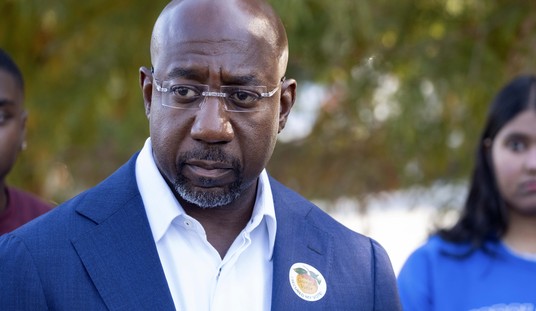Promoted from the diaries by Bill S.
Jim Wallis, the longtime leader of Sojourners, a Washington D.C. based ministry dedicated to articulating “the biblical call to social justice,” used the opportunity in a February 24, 2011 column, “This is Not Fiscal Conservatism. It’s Just Politics,” to take an errant shot at recent Congressional Republican budget proposals and Wisconsin governor, Scott Walker. Reverend Wallis, as you may recall, was a religious adviser to Candidate Obama in 2008 and, over the decades, has never been shy to level sharply worded and religiously-steeped criticism at any federal or state legislative effort which he believes challenges his claimed core constituency, the poor, or his allies in the call for ‘social justice.’
Criticizing Wallis, in turn, is not easy – not because he’s never wrong, but because challenging him immediately draws familiar and convenient retorts that the critic isn’t reflecting Christ’s values, or worse yet, simply doesn’t care about the poor. Conservative commentator, Glenn Beck, found himself at the end of such Wallis’ barbs early last year.
In February and March, 2010, Wallis and Beck went toe to toe for weeks – Beck urging Christians to run from churches that preached Wallis’ notion of ‘social justice,’ as reminscent of communism’s call for redistribution of wealth and loss of personal liberty, and Wallis, for his part, responded in kind, urging that Christians should stop watching Beck altogether. Frankly, neither the charge, nor counter-charge, nor the particular methods of delivery were particularly worthy of Christ or Christian adherence. Admittedly, Beck did succeed in piercing Wallis’ shield of impenetrability, which for decades has been cloaked in his increasingly implausible claim that his adherence to “God’s Politics” elevates him above the political fray, as neither a Republican, nor Democrat, and neither conservative, nor liberal. This claim, as Beck accurately pointed out, is simply not true.
Where Beck failed, however, was in his pitbull insistence that Wallis’ use of ‘social justice’ was an interchangeable code word for Wallis’ true call for ‘communism.’ Wallis is not a communist; yet, you can not easily dismiss the troubling nature of Wallis’ refusal to level any serious and sustained criticism of contemporary liberal philosophy and proposals.
Reverend Wallis has made a name for himself arguing for progressive politics, insisting that such progressivism meets broader Christian objectives. Conversely, he, further, enjoys his status as an oft-cited mouthpiece of the liberal left’s criticism of conservative proposals, which challenge the liberal status quo – almost irrespective of whether such conservative proposals may, in fact, or could benefit the same constituency that Wallis’ claims as his own.
A telling example of Wallis’ penchant for presumptively criticizing American conservatism is found in his analysis of President Bush’s 2005 proposal on social security reform. To recap, President Bush proposed the following in relation to social security reform: 1) there would be no change for current retirees and those near retirement; 2) no increase in payroll taxes; and, 3) Discretionary personal retirement accounts. It was this third item which liberals claimed was Bush’s effort to ‘privatize’ social security, with a minimal 2% of payroll tax being diverted to fund these, again, discretionary accounts.
In an open letter to Congress, written in early 2005, criticizing the Bush proposal, Wallis writes:
“. . . Privatizing Social Security threatens to dismantle our nation’s commitment and breach a covenant held between child and parent, worker and retiree, employed and unemployed, able and disabled. Casting it aside disrespects the biblical covenant. Social Security offers a guarantee of security for the elderly and many others that the stock market can never provide. President Bush’s plan to privatize Social Security would take a significant portion out of the Social Security benefits that so many Americans depend upon and divert it for private investment in the stock market. Turning what was a public promise into a private gamble could create a serious breach in the covenant between generations and raises deep questions about the moral priorities of our society. Social Security privatization could easily ‘rob’ mother and father. Our faith requires that we consider carefully privatization would hurt children, women, and people with disabilities.”
Lost amidst the vitriole of Wallis’ response and the response of many others on the left was the fact that Bush’s proposal was directed at addressing a funding shortfall, which if unaddressed would ultimately bankrupt the system – rhetorically, one might have asked Wallis whether the dissolution of the social security system altogether was a greater breach of our covenant with America’s seniors than a prospective reduction in benefits for today’s younger workers 40 years hence. Somehow, Wallis seemed to ignore this salient point.
Further, President Bush attempted to provide a means by which the disparity in benefits to African Americans, resulting from shorter life expectancy, could be ameliorated by an ability to grow certain discretionary funds at rates faster than typical government returns. This point was lost on Wallis, as well.
Less than ten months later after the Bush proposal was announced, the John F. Kennedy School of Government at Harvard University, where Wallis has been a part-time instructor and not exactly a bastion of conservative thought, released its own commissioned ‘non-partisan’ report outlining necessary social security reforms. The report highlighted the four following requisites: 1) a gradual reduction in future benefits; 2) an increase in the payroll tax cap; 3) an increase in the retirement age; and, 4) mandatory personal retirement accounts.
This non-partisan panel of social security experts contemplated that a minimum of 3% of payroll tax (1.5% from the employee and 1.5% from the employer) would be diverted to fund these mandatory personal retirement accounts. By comparison with the Bush proposal, the well-publicized Harvard proposal was downright draconian – yet, the liberal left was silent and so was Jim Wallis. It seems that the source of the proposal and who was in the pulpit to make it so played a larger actual part in Wallis’ criticism of the proposal, than the content of the proposal itself.
Getting back to Wallis’ battle with Beck – contrary to Beck’s assertion, Wallis’ problem isn’t that he’s a ‘communist’ or ‘marxist.’ (Indeed, Beck’s criticism on this point is curious. Marxists argue, in part, that governmental action, rather than and as opposed to religious benevolence, is required because political power of the proletariat is derived from the the secular and sterile redistribution of capital. Marxists don’t depend on God or Biblical instruction to define morality and the social good, in fact, they run from such notions; ‘religion is the opiate of the masses,’ remember? Wallis, conversely, embraces faith as the defining principle of public life; see Wallis’ 1981 book, The Call to Conversion: Why Faith is Always Personal But Never Private.) Beck’s effort to so assign Wallis was regrettably simplistic and glosses over the ironic danger that Wallis’ leadership of the progressive left poses to American political thought.
The problem with Wallis’ brand of progressive leadership is two-fold. First, he maintains that Biblically-based morality standards can and should serve as guideposts for all prospective government action. Government and faith are inexorably linked in Wallis’ progressive model. As his criticism of current Republican budget proposals and Governor Walker demonstrates, government action is judged by its adherence to Biblically-based notions of ‘social justice’ and is invariably subject to criticism if it doesn’t meet certain faith and morality objectives.
The belief that government and faith not only can but must be linked, enabling each to provide reciprocal measure of the other, is completely specious. There is no . . . no part of the New Testament, which speaks to the role of government in carrying forward Christ’s message of redemption. In fact, the Bible is replete with exactly the opposite message.
As a Christian man, I do not pledge or surrender my faith to the government. Mark 12:17 states:
“Then Jesus said to them, ‘Give to Caesar what is Caesar’s and to God what is God’s.’ And they were amazed at him.”
Neither do I expect that government work can provide me, as a Christian, that redemption which is promised through my acceptance of Christ as my Lord and Savior. Government programs caring for the poor are not the cause of Christ, nor the acts of Christians. Rather, Christians caring for the poor is the cause of Christ.
Wallis, undoubtedly would cite his support conservative Alabama Governor Bob Riley, who proposed a massive tax hike against wealthy Alabamans as a way to carry forward his Christian mission of caring for the poor, as evidence of both his support for conservatives and of government carrying forward Christ’s mission. But Wallis and Riley are both wrong and to suggest that a state tax hike on wealthy Americans is somehow carrying out a faith-based obligation is a perversion of Christian responsibility.
At the moment of Final Judgment, described in Matthew 25:40, Christ tells us:
“And the King will answer and say to them, ‘Assuredly, I say to you, inasmuch as you did it to one of the least of these My brethren, you did it to Me.'”
Was Christ speaking to King Herod? Or to his followers? Did Christ say that his brothers’ actions would be judged by what King Herod did to benefit the poor?
Redemption through Christ is a private affair, a reflection of individual acceptance of Christ and Christ’s mission. If Wallis wants Christians to care about the poor, he ought to be evangelizing to spread the Gospel to those who do not yet believe and, then, calling and leading the converted to demonstrate Christ’s love in their everyday lives.
Government, as a secular entity, has no place carrying forward or establishing Christ’s mission. Individuals do. Christians do.
This statement may cause Christian conservatives to pause. It shouldn’t. Clearly, this democracy was founded on Judao-Christian ethics and principles of self-determination and unalienable rights, including the belief that the pursuit of liberty and equality was a divinely protected human cause. And, I am not calling for Christian politicians to disavow their faith. But, here’s the point – contrary to what Wallis would implicity (if not explicitly) argue, nowhere did our Founding Fathers declare that our government should be directed and/or judged by and in accordance with the tenets of a distinct religious faith.
The other area for growing concern over Wallis’ progressive politics is that it is rooted far more in the political left than he is willing to acknowledge. He claims to be above the fray. He isn’t. And, while Wallis isn’t a communist or a Marxist, he is a liberal.
Wallis has mastered the ability to play to his audiences. Far more often than not, when speaking to the more conservative religious community in person or through his many books, Wallis’ social activist rhetoric is decidely more muted. By example, Wallis speaks, as he writes, to a quiet alliance with the pro-life movement. But that’s where it ends. He does not pound-the-table in support of conservative principles in any way like he permits himself to do when being regularly called on by the Olbermanns of the world to lambaste conservatives and Republicans. Make no mistake, you will no more see Wallis’ extolling his appearance at a pro-life rally on MSNBC than you will see him walk through the halls of CPAC.
Years ago, I had the chance to meet Wallis, while serving with him on a three person panel discussing the role of faith in partisan politics. Two things that I recall as I left the forum were: 1) I liked Jim Wallis. I was and am attracted to his evangelistic Christianity. Wallis comes by his evangelistic roots naturally; as an Episcopalian by birth, I do not. Yet, I found solace in and was attracted to his passion for Christ; and, 2) I was skeptical about whether Jim Wallis was really as disconnected from liberal politics as he claimed. Sure, there are issues in which he found and finds sanctuary with conservatives – he tends to be pro-life, by example. But, I didn’t sense that night and don’t sense now that Jim Wallis truly accepts that people can be dedicated and consistent conservatives and passionate Christians, simultaneously. And, this is what is dangerous and most troubling about his faith-based progressivism.
As much as Wallis has criticized some well-known conservative Christians in the past for their claims that God has inspired certain personal action and political positions, basically, he claims the exact same thing. He simply uses the Bible to construct his political positions. Yet, his intolerance for those who adopt political positions which don’t comport with his theocratic view leads him, by process of context and elimination, to dismiss others and label their actions as un-Christian. This rhetoric damages both the political dialogue which must take place to develop effective public policy and the cause of faith, itself.
As to standard budgetary matters, certainly, Wallis speaks to the moral imperative of avoiding debt. However, he suggests little to nothing practically speaking regarding how to do that – instead, his focus relies upon the standard liberal diatribe regarding the need to challenge corporate excess and greed and that conservative budget proposals do nothing but balance the books on the backs of the poor and underserved.
On the issue of current federal and state budgets, his summary criticism of congressional Republicans and Governor Walker borders on the ridiculous. By example,
“. . . Governor Walker’s proposed bill is really more about his ideological commitments and conservative politics — which favor business over labor — than about his concern for Wisconsin’s financial health.”
The statement is patently false and offensive. Whether Jim Wallis wants to acknowledge it or not, Wisconsin’s state budget is billions of dollars in the red. That’s a fact. It is the governor’s job – in fact, the governor’s statutory responsiblity – to balance the state budget. But rather than focus on the need for shared sacrifice, Wallis takes the opportunity to paste Governor Walker as just another disingenuous politician, because he happens to be a conservative. It is no more complicated than that.
How can Wallis expect to be a broker of reasonable and effective public policy that incorporates the best ideas of both political parties if he can so easily deride the efforts of Wisconsin’s governor, while offering nothing of substance to advance the debate? America’s financial situation demands far more from those that want to participate in our political process. The time for silliness must end and the time for Wallis to demonstrate his credentials as truly being above the political fray is long since past. If Jim Wallis fails to recognize that toxic debt will destroy this country and its government, he should be prepared to accept that the government upon which he calls to meet the cause of ‘social justice’ will no longer exist.
Jim Wallis has a choice to make – keep being a mouthpiece for the progressive left which is doing much too little to solve today’s budgetary problems, while throwing up his hands and saying, ‘who me?’; or, dropping his caustic rhetoric and demand that all Americans, including his friends in unions and on the liberal left, share in the sacrifice which will save our Union and preserve the American dream. Only then will my skepticism subside over Reverend Wallis’ claim that he speaks only for ‘God’s Politics.’ As a Christian man and a conservative who loves this country, I welcome that day.














Join the conversation as a VIP Member